Research Vision
iSchool researchers address key challenges at the intersection of people, information, and technology. Our cross-disciplinary faculty draw their expertise from diverse fields including library science, information science, data science, computer science, sociology, physics, engineering, communications, literature, history, and education. Our strategic research vision drives the scope of our research and presents a distinct imprint for the substance and impact of our work.

iSchool faculty, staff, alumni, and students bring together wide-ranging areas of expertise to investigate all aspects of information creation, access, use, and preservation. These efforts are informed by our School’s strategic research vision, which reflects the value of information to society.
J. Stephen Downie, Professor and Associate Dean for Research
Data science opens new windows to knowledge.
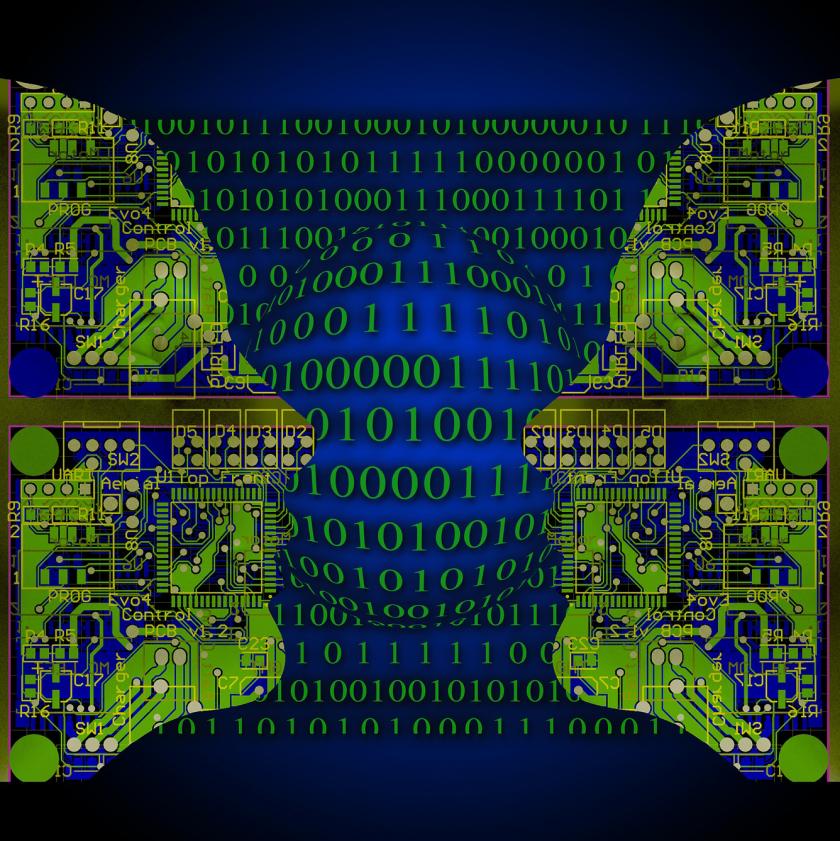
We envision a world where people marshal data for discovery and insight, while preserving social values.
Since at least the origins of recordkeeping in Sumer and Egypt over 5,000 years ago, human enterprises have relied upon data as a foundation for understanding, profiling, and analyzing the past and the present, as well as predicting future opportunities and conditions. Earlier technologies and practices of recordkeeping and analysis have repeatedly given way to advances in gathering, representing, maintaining, and massaging data/information that have radically lowered costs and increased the scale of data operations. As we move into another era of sea-changes in the "variety, volume, and velocity" of data practices, our researchers focus on understanding foundational properties of information like representation, aggregation, and modeling; curating, managing, and integrating huge structured and unstructured data collections; creating modern algorithms that improve retrieval and that probe data for novel, high-impact inferences; all the while grappling with how to assure appropriate access, ethical standards, privacy, integrity, and security of collections in use.
iSchool projects couple humanities scholars with massive new textual and historical resources; biology and health-care researchers with huge integrated collections of literature and scientific data; social scientists with global-scale, quickly evolving collections of real-time human behavior traces, and more. Our efforts are working toward a future of exciting new evidence-based discoveries that balance broad social values and the interests of many public and specialist stakeholders in the data universe.
Contributing research areas: Argumentation; Artificial Intelligence and Machine Learning; Computational Social Science, Social Computing; Computing for Social Good; Data Analytics and Human Centered Data; Data Curation; Data Science; Digital Humanities; Diversity and Social Justice; Ethics and Values for Information; Foundations of Information; Health, Medical, and Bio-Informatics; Human Computer Interaction, User Experience, Computer Supported Cooperative Work; Information Retrieval; Information Visualization; Informetrics (and Scientometrics); Natural Language Processing, Text Mining, Text Analysis, Computational Linguistics; Network Science and Network Analysis; Privacy, Security, and Trust; Reproducibility; Science of Science; Social Informatics; Semantic Computing and Technologies; Social and Information Networks
Libraries shape what we know and who we are.
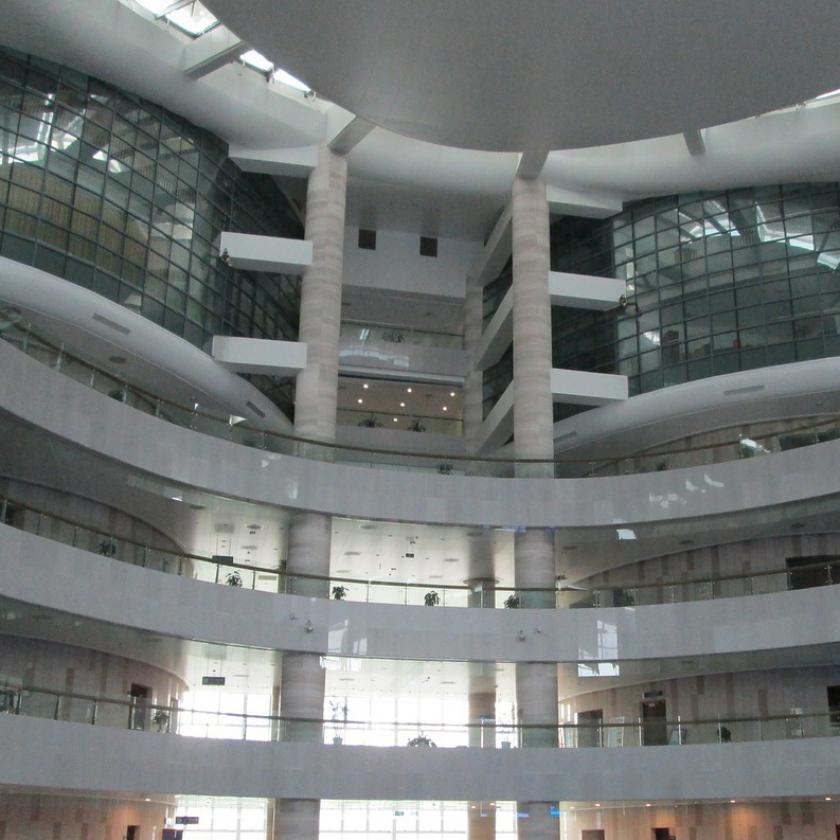
We envision libraries and information institutions that will shape the knowledge landscape of the future.
For millennia, human knowledge and heritage has been captured, organized, and accessed via the societal institutions of libraries, museums, archives, and such. The social practices, content, and technologies of these institutions have evolved greatly over time. But the fundamental societal value of collected collective information has remained central for informed, active, citizenry, and for broad participation in enterprises of arts, science, education, industry, commerce, government, and healthcare, to name just a few. Drawing on a wide array of sources and disciplines, our researchers study the histories, best practices, social integration, and foundational technologies of libraries and many other societal information centers. We aim to clarify how they work, how to maintain their enduring value, and how to continue wide and equitable access for all. iSchool scholars invent new state-of-the-art policies, practices, technologies, and infrastructures that will sustain the libraries and information institutions of the future.
Contributing research areas: Archives and Preservation; Cultural Informatics and Heritage; Data Curation; Digital Libraries; Diversity and Social Justice; Education of Information Professionals; History of Information; Information Literacy; Information Practices and Behaviors; Information Retrieval; Libraries and Librarianship; Organization of Knowledge and Information
History informs our identity and guides our information future.
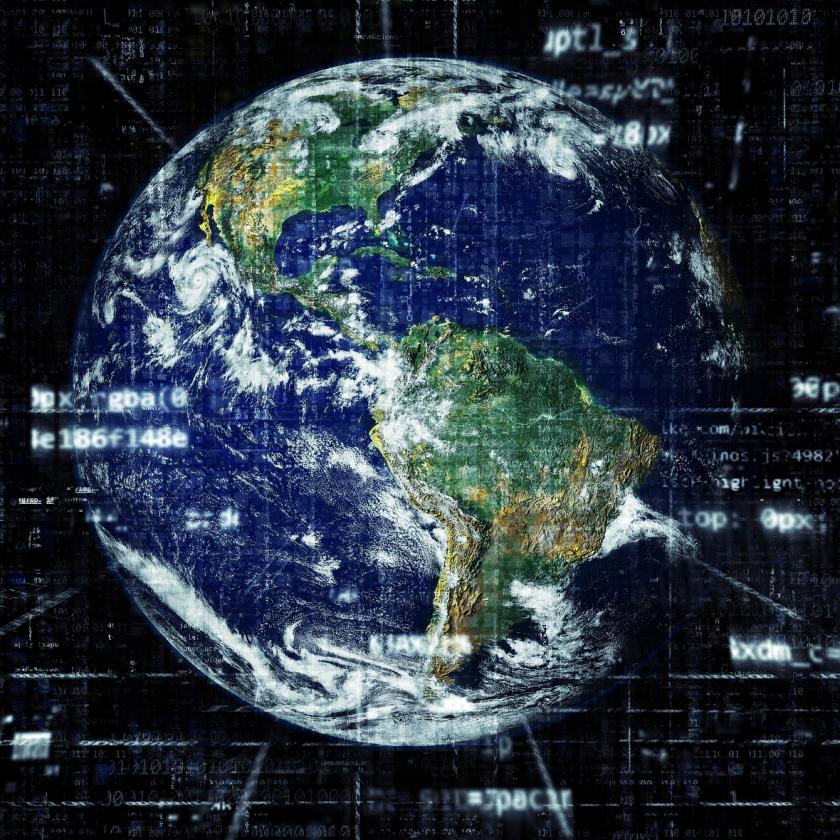
We envision global access to human cultural, scientific, and information heritage, learning from the past to inform tomorrow’s world.
The key role of history in human affairs goes far beyond Santayana's aphorism that those who fail to grasp history are condemned to repeat it. History informs our enduring identities as both persons and peoples. It informs who we are, and what we can become from the present. iSchool researchers investigate the history of libraries and of broad information practices through a wide set of lenses including physical architecture, organization and access technologies, political economies, social control, ethics, use policies, censorship, and social justice. New types and modalities of information, ranging from science and humanities databases and scholarly publishing regimes, to video/computer games, intangible artifacts, new forms of art, and personal archives, appear rapidly.
Preserving, archiving, and maintaining access to the world's growing scientific, civic, and cultural heritage demands deep reflection on practices and infrastructures of information through history. Future access demands better infrastructures and practices to manage existing and emerging cultural/historical objects themselves. Our researchers' wide engagement with information history itself, with historical materials, and with the culture of the present—tomorrow's history—is assuring that as a society we will be able to learn from the past to comprehend our current realities, craft our social and personal identities, and foster a better future.
Contributing research areas: Archives and Preservation; Cultural Informatics and Heritage; Data Curation; Design and Evaluation of Information Systems and Services; Foundations of Information; History of Information; Information Retrieval; Reproducibility; Organization of Knowledge and Information; Information Practices and Behaviors
Systems serve people.
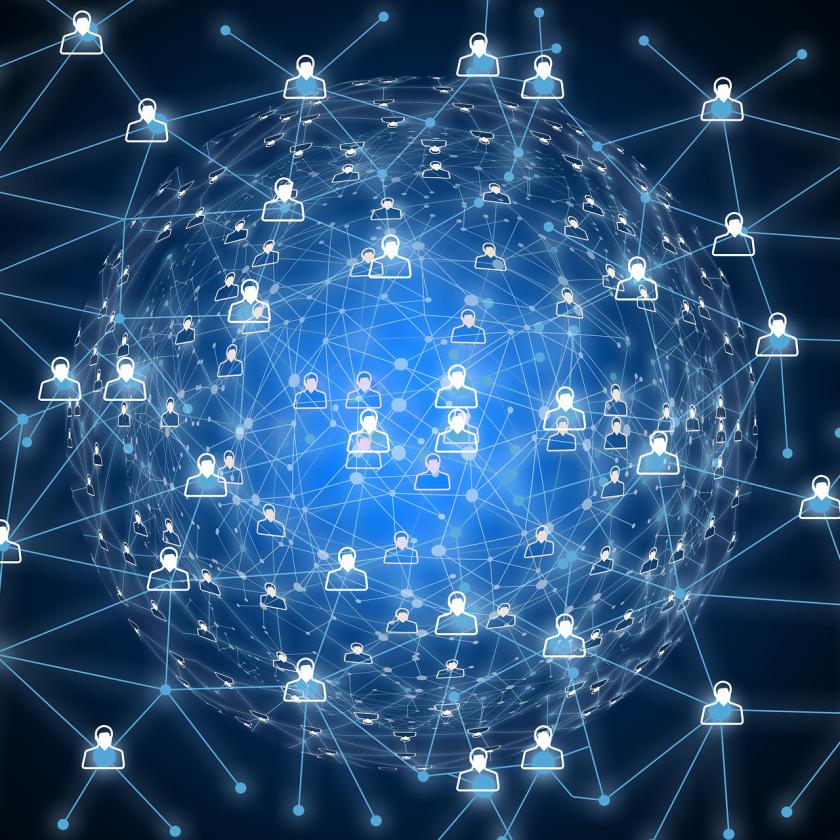
We envision a world where information systems make sense and serve people.
As information penetrates more broadly and deeply into the fabric of human endeavor, we find ourselves too often overcome with the scale, complexity, and fragility of modern information services and systems. From nonsensical and even dangerous user interfaces, to invisible decision logics and data sources, many of our information environments are constraining us rather than serving us. Some of these failings have roots in extreme technical complexity and lack of designers' insight and experience. Some of them are rooted in the struggles of competing social and political interests of powerful actors, organizations, and institutions. iSchool researchers examine the spectrum of sociotechnical forces and structures to understand and improve information access and utility.
Contributing research areas: Computational Social Science, Social Computing; Computing for Social Good; Data Analytics; Data Science; Design and Evaluation of Information Systems and Services; Ethics and Values for Information; FATE (fairness, accountability, transparency, ethics); Foundations of Information; Information Policy; Information Retrieval; Informetrics (and Scientometrics); Organization of Knowledge and Information; Knowledge representation, Ontologies; Privacy, Security, and Trust; Social Informatics
Information is a vital human resource.
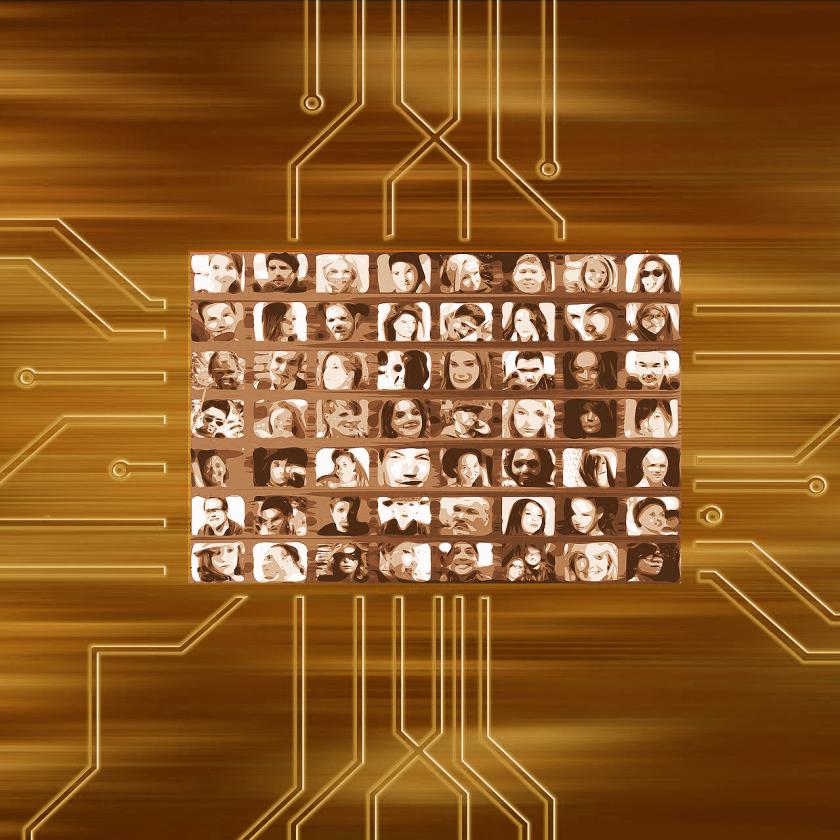
We envision a world in which information is a fundamental human resource like food, energy, and transportation, with equitable access for all.
All modern human activities and services depend critically on information. A dynamic civil society depends on a knowledgeable, informed public as well as open access to decisions, policies, laws, culture, and public records. Fundamental scientific advances require deep reasoning about the nature of information in the social, biological, and physical worlds. The heart of the global banking and energy systems is information flow. Rapidly scaling efficiencies of e-commerce rely upon many forms of information, from customer interactions to package tracking. In spheres like these and many more, our researchers strive to understand how to define, apply, and appropriately access information.
Contributing research areas: Community Informatics; Computational Social Science, Social Computing; Computing for Social Good; Diversity and Social Justice; Education of Information Professionals; FATE (fairness, accountability, transparency, ethics); Foundations of Information; History of Information; Information Access; Information Policy; Privacy, Security, and Trust; Social Informatics; Social Media
Information literacy enables participation in the knowledge society.
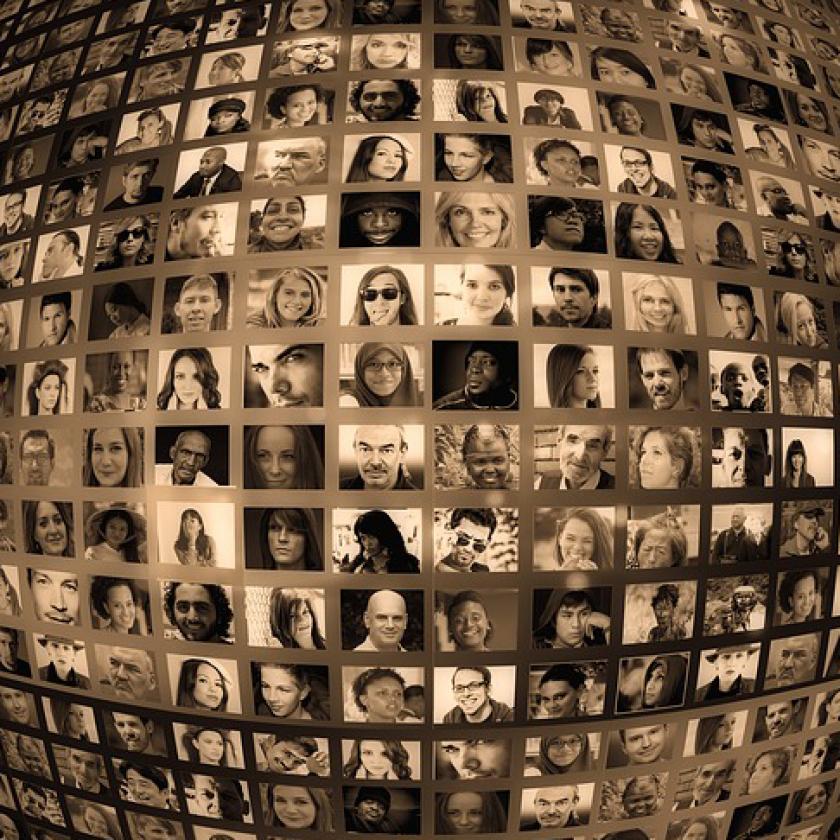
We envision empowered individuals creating and using information responsibly.
Information often seems simple—most of us think we know how to hold a conversation, view a picture, watch a movie or TV show, or listen to music we like. We often forget that the technologies of talk, photography, film/TV, and music have changed completely even over the past few years. We forget that linguistic, visual, and musical vocabularies have evolved too; we've had to learn to comprehend new structures like quick-cut movies, photoshopped pictures, electronic dance music (EDM) or online print, and learn when to drop the old.
We forget that the sources, spread, reach, and content of this information—who can speak with, listen to, photograph, or share what content with whom, how, and where, both technologically and in terms of social, political and cultural norms—have also transformed over a very short time. Information literacy—the ability to locate, evaluate, use, and communicate information—is a learned skill that rests on a constantly evolving, culturally-specific, social, technical, economic, political, and content base, and it's not simple. Responsible, engaged participation in the modern world, where many more participants produce, find, evaluate, and use information than ever before, requires high information literacy. iSchool researchers are building new ways of understanding and fostering information literacy. We investigate the barriers to information literacy in all these dimensions, and work to develop the means to overcome them. iSchool research on improving information literacy integrates many disciplines, and aims to create a society in which all people have the information skills to participate openly, creatively, effectively, and responsibly.
Contributing research areas: Computational Social Science, Social Computing; Computing for Social Good; Community Informatics; Cultural Informatics and Heritage; Digital Humanities; Digital Libraries; Diversity and Social Justice; Education of Information Professionals; History of Information; Information Literacy; Information Practices and Behaviors; Knowledge representation, Ontologies; Youth Literature, Culture, and Services